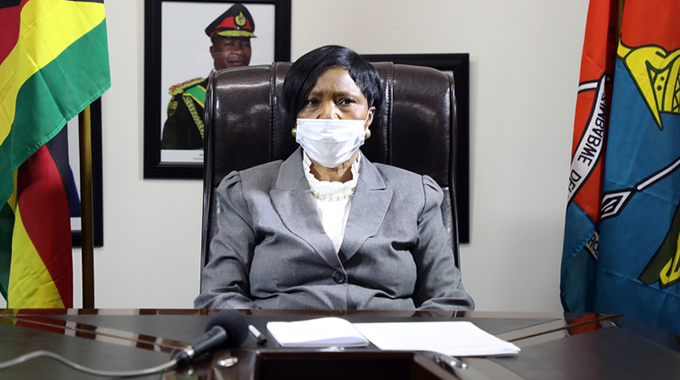Sexual harassment in the digital age- Cyber laws must be adequately address online violence

The world is in the midst of the Fourth Industrial Revolution, which is characterised by the encroaching of technology into the physical, digital, and biological sphere. Things such as messaging, job applications, monetary transactions and many more can easily be done at the swipe of a button. There has been a noted increase in internet use in Zimbabwe in the last five years with the popularisation of social media platforms such as WhatsApp, Facebook and more recently Twitter and YouTube. Our reliance on the internet has fundamentally altered the way we use, work, and relate to one another as it has provided an almost limitless access to knowledge and information from the comfort of a smart gadget. Due to the world’s dependence on the internet and other digital spaces, technology now has a direct influence on all human functions including the workplace. In response to this, on the 15th of May 2020 the Parliament published the Cyber Security and Data Protection Bill, 2019 to align cyber security and data protection laws with the Constitution and to provide for the criminalisation of cybercrimes.
The increased use of the internet has brought about more ways in which crimes and infringements to human rights manifest. In the workplace, sexual harassment is no longer limited to physical and verbal unwanted sexual conduct, but it has expanded to online. Sexual harassment can now be done through social media applications, e-mails, sharing of videos and pictures with contents of a sexual nature. This nature of harassment falls under what is termed ‘cyber gender-based violence’ as it specifically happens online or in the use of digital technology. The COVID-19 pandemic saw an increase in internet use through people working from home and therefore communicating digitally and more people spending hours on social media. This has potentially peaked the sharing of non-consensual intimate images, videos and threatening messages, online stalking, all which constitute sexual harassment in the world of work.
Currently legal remedies for sexual harassment can be found in the Labour Act (Chapter 28:01), the Criminal Law (Codification and Reform) Act (Chapter 9:23) and the Public Service Regulations (SI 1 of 2000). These provide civil and criminal law remedies for example in the event of unfair dismissal as a result of a hostile working environment for example sexual harassment or criminalisation of unwanted sexual conduct such as rape. The rules of evidence, which ought to be followed when administering evidence in court also fail to aptly cater for online violence as the provisions fall short in addressing the complexity of cybercrimes. The gaps within the law have allowed for perpetrators of sexual violence to fall within the cracks of the law without any consequences. Zimbabwe’s cyberlaws are found in the Access to Information and Protection of Privacy Act (Chapter 10:27) which too fails to cater to the dynamic nature of the online space.
The Cyber Security and Data Protection Bill proposes some welcome and unwelcome changes to our cyber laws. In clause 164B, it provides for the criminalisation of cyber bullying and harassment which is defined as unlawfully and intentionally using online spaces to coerce, harass, threaten, bully, degrade or humiliate another person. Those found guilty of this conduct are liable to paying a fine or imprisonment of not more than 10 years.
In order to fully address cyber abuse especially of a gendered nature such as online sexual harassment World Wide Web Foundation submitted some of the following remedies to the Special Rapporteur on Violence Against Women:
- Investing in ongoing national awareness campaigns to help women understand what online gender-based violence looks like,
- Passing of string, comprehensive privacy laws, aimed at protecting the rights of both women and men,
- Ensuring that domestic violence reports account for harms perpetrated through digital technologies, with timely response and actions taken by both law enforcement and online platforms,
- Ensure that women and girls can take legal action against perpetrators of online violence, and that police and judiciary have the training and resources to pursue such cases,
- Provide timely technical assistance, counselling and support to women who report.
These recommendations are an opportunity for the country to create a national sexual harassment policy which fully recognises the cyberspace as a medium for violence.
By Danai Chirawu
For feedback, questions and comments please feel free to email – [email protected].
For a 24 hour response to Gender Based Violence issues, call our toll free number 08080131: Hotline 0782900900.
Remember to wear masks every time you are in contact with others, practice social distancing and washing your hands with soap.








Comments